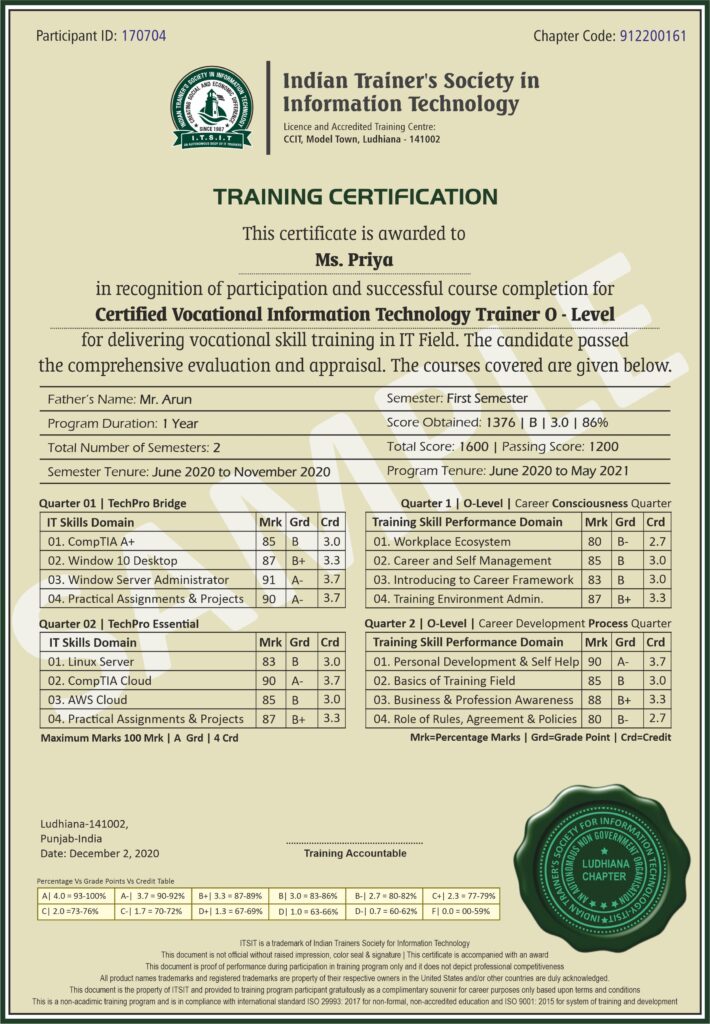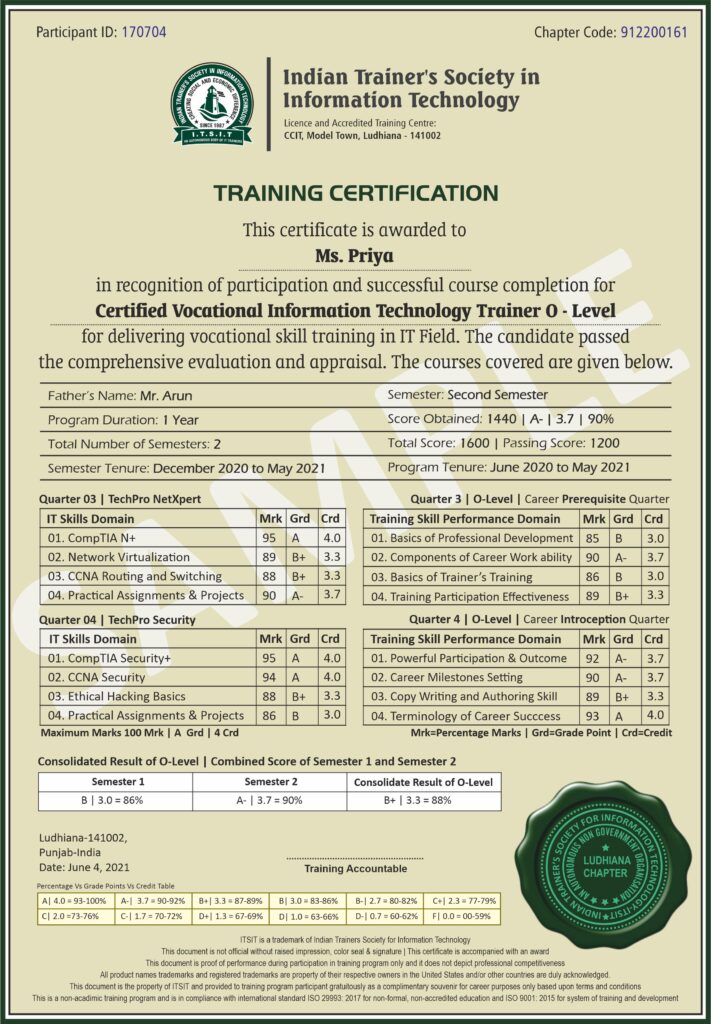O-Level- Training of Cybersecurity Trainers (TOT) Program
The O-Level serves as the starting point for individuals new to cybersecurity, focusing on foundational IT skills, including hardware, operating systems, networking, and basic cybersecurity concepts. The Purpose of level is to provide trainees with the essential skills required to manage and secure IT infrastructure. This level ensures participants are proficient in basic IT operations and prepared for more advanced cybersecurity studies. The intention of O-level includes equipping trainees with hands-on experience in IT systems management, network configuration, and system security. It establishes a strong technical base for future advanced learning
O-Level Objectives:
- Develop foundational technical skills in managing IT infrastructure.
- Provide a hands-on approach to system administration.
- Prepare participants for advanced cybersecurity concepts.
- Ensure participants understand basic network security and troubleshooting.
O-level includes two semesters as follow:
O-Level- Semester 1
It focuses on building foundational IT skills necessary for system administration and network management. It introduces trainees to critical concepts such as operating systems, system configuration, and troubleshooting. The purpose is to establish a technical base that will serve as the foundation for more specialized cybersecurity knowledge in future semesters. The intention is to give participants practical experience in managing Windows and Linux environments while understanding the basics of cloud infrastructure, ensuring they can handle real-world IT operations. Semester 1 includes following two quarters:
- Quarter 1- TechPro Bridge
- Quarter 2- TechPro Essential
Quarter 1- TechPro Bridge
It introduces participants to essential IT administration skills. Trainees will learn how to manage Windows-based systems, setting the stage for understanding network security later in the program. The purpose is to familiarize participants with the practical aspects of IT system configuration and troubleshooting. The intention is to build confidence in managing operating systems and troubleshooting common issues, establishing a strong technical foundation necessary for more advanced security topics. It includes following courses:
- CompTIA A+
- Windows 10 Desktop
- Windows Server Administrator
Quarter 2- TechPro Essential
It expands on the foundational knowledge from Quarter 1 by introducing Linux system administration and cloud computing concepts. This quarter ensures that participants are familiar with managing both on-premises and cloud infrastructures. The purpose is to diversify trainees’ technical skills, preparing them for the complexity of modern IT environments. The intention is to ensure participants can navigate and secure cloud environments while strengthening their understanding of server administration and virtualization. Quarter 2 includes following courses:
- Linux Server+: Develops the ability for Linus adminstration to manage Linux servers.
- CompTIA Cloud+: Provides knowledge about cloud infrastructure and management.
- AWS Cloud: Introduces cloud computing on the AWS platform.
O-Level- Semester 2
Quarter 3- TechPro NetXpert
This quarter is focused on networking fundamentals. Participants learn how to configure and secure networks through routing, switching, and network virtualization. The purpose is to provide trainees with in-depth knowledge of networking concepts that are critical to cybersecurity. The intention is to build proficiency in network management and security, ensuring participants can design and maintain secure networks for organizations. Following are the courses in Quarter 3:
- CompTIA N+: Networking fundamentals.
- Network Virtualization (VMware Certified Professional): Network virtualization management.
- CCNA Routing and Switching: Cisco-certified networking and routing techniques.
Quarter 4- TechPro Security
This quarter introduces trainees to network security, ethical hacking, and the basics of penetration testing. The purpose is to prepare participants for their first steps into the world of cybersecurity by teaching them how to secure IT systems from cyber threats. The intention is to ensure that participants can identify and protect against vulnerabilities, equipping them with foundational skills in ethical hacking and network security. Following are the courses in Quarter 4:
- CompTIA Security+: Network security certification.
- CCNA Security: Cisco-certified network security protocols.
- Ethical Hacking Basics: Introduction to ethical hacking concepts
O-Level | Semester -1 | Transcript

O-Level | Semester -2 | Transcript

